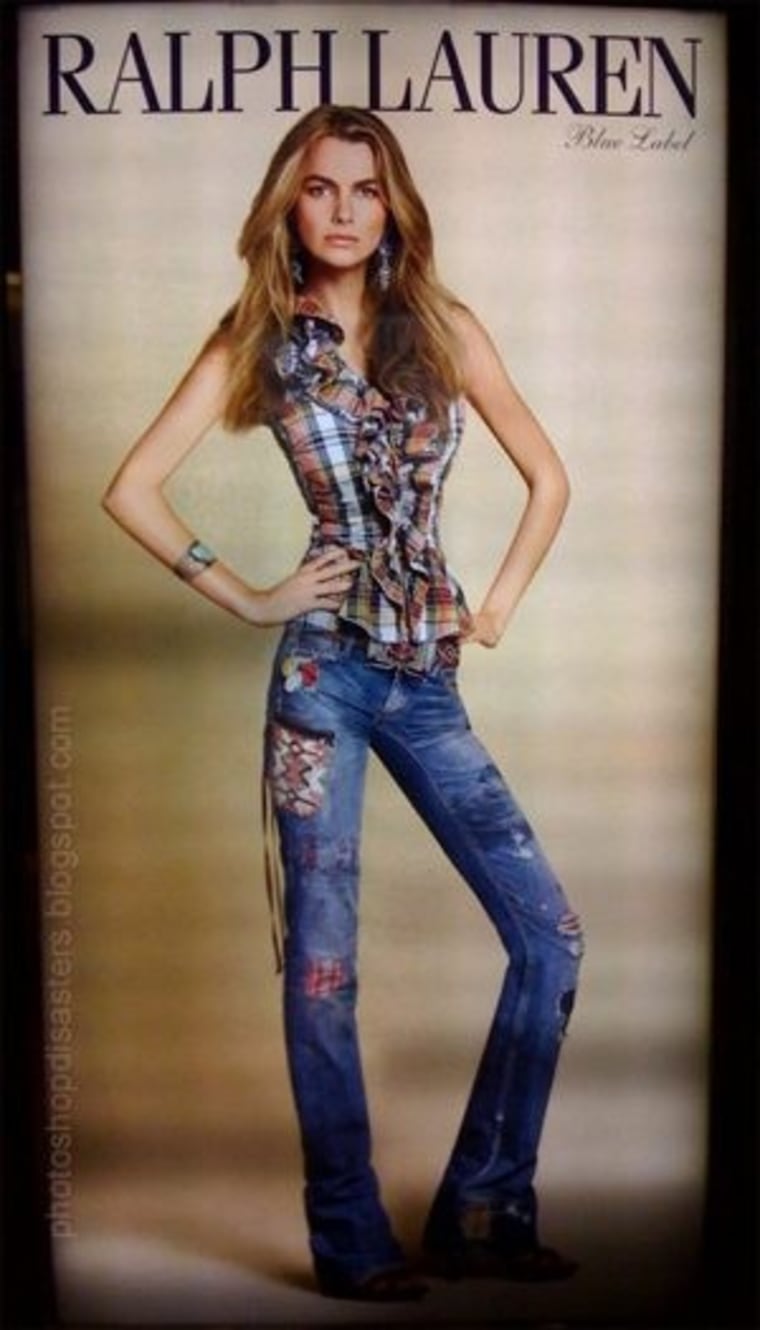All those women's fashion ads that show models with 12-inch waists you know are clearly Photoshopped? The American Medical Association is asking the ad industry to stop tweaking photographs that way because of the unhealthy message they send.
"Advertisers commonly alter photographs to enhance the appearance of models' bodies, and such alterations can contribute to unrealistic expectations of appropriate body image — especially among impressionable children and adolescents," the AMA said in a statement.
"A large body of literature links exposure to media-propagated images of unrealistic body image to eating disorders and other child and adolescent health problems."
In the policy adopted by the AMA at its annual meeting this week, the group encourages advertising companies to work with both "public and private sector organization concerned with child and adolescent health to develop guidelines for advertisements, especially those appearing in teen-oriented publications, that would discourage the altering of photographs in a manner that could promote unrealistic expectations of appropriate body image."
It's not only female models who are Photoshopped, of course; male models are too, the AMA is addressing all such ads.
Dr. Barbara L. McAneny, an AMA board member, cited one advertising image in which "a model's waist was slimmed so severely, her head appeared to be wider than her waist."
That ad, from Ralph Lauren, created a kerfuffle in the fall of 2009, when BoingBoing posted the image, and Lauren tried to sue the site for copyright infringement. That went nowhere.
"Unfortunately for Ralph Lauren, this only furthered public interest and outrage over the dangerously thin looking model and, eventually, the clothing company" released an apology," wrote Shine at that time. That apology from Lauren said:
For over 42 years we have built a brand based on quality and integrity. After further investigation, we have learned that we are responsible for the poor imaging and retouching that resulted in a very distorted image of a woman's body. We have addressed the problem and going forward will take every precaution to ensure that the caliber of our artwork represents our brand appropriately.
Photoshop Disasters, a website that showcases "terrible Photoshop from various kinds of digital and printed media," also featured the photo, and has continued to share subsequent Lauren ads and others that it believes represent "the best of the worst Photoshop."
The AMA, while having no real teeth in the matter, is quite firm about where it stands. Says the AMA's McAneny: "We must stop exposing impressionable children and teenagers to advertisements portraying models with body types only attainable with the help of photo editing software."
Related stories:
- No Osama bin Laden pic? Blame Princess Beatrice's hat
- White House photo viewed as often as it is parodied
- BP digitally alters press photo, confesses it's a fake
Check out Technolog, Gadgetbox, Digital Life and In-Game on Facebook, and on Twitter, follow Suzanne Choney.
